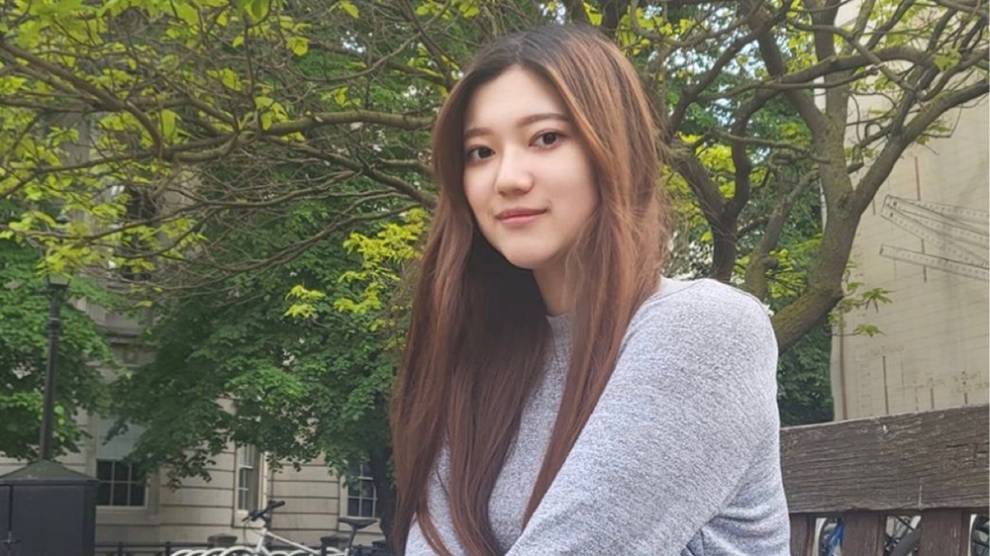Meet Ichika from Japan who studied the UPCSE in 2021 and went on to study Cancer Biomedicine at UCL.

What's your background?
I spent most of my time in Japanese schools, except for the three years in an international school that I attended.
Before I enrolled in the UPC, I was a student at a Japanese high school, which offered a medical science course – intended for those who seek a career in science/medicine.
Why did you choose to study at UCL?
At first, I was truly fascinated by the BSc Cancer Biomedicine course offered by UCL, as I believe that studying cancer specifically from the undergraduate level is less common.
I thought deciding on my speciality at this level might be slightly premature, but at the same time, I was attracted to the advantage that I would gain by building up my knowledge about oncology from an early stage.
What course do you study now and what is it like?
I study BSc Cancer Biomedicine, which I chose to apply based on my personal experience. My mother was diagnosed with breast cancer when I was 17. Until then, I had dreamed of becoming a medical doctor in Japan, but looking at my mother suffering through painful interventions taught me the limitations of current treatments and made me realise the significance of the researchers sitting behind the doctors. This experience sparked my interest in the field of cancer research.
The best part of being in this course is that it is cancer-specific, yet we are able to coordinate ourselves to study something not related to cancer as well. We can continue to study cancer while maintaining a broad overview of the subject of biomedicine.
How has the UPC helped you in your undergraduate degree?
In Year 1, I mainly studied basic physiology, which taught us how our organs function and what would be the consequences if those fail to work properly. While studying, I realised that a lot of topics actually overlapped with what I have studied throughout UPCSE. This helped me adjust myself in studying smoothly and effectively.
Also, by studying Academic English and Science and Society, I believe that my academic writing skills have improved dramatically. My choice of vocabulary and the way I cite references have changed and I was capable of completing coursework such as essays without difficulties.
What was the biggest challenge you faced during your time on the UPC?
As I had been studying Biology and Chemistry mostly in Japanese, the biggest difficulty that I had to overcome was memorising all the terminology again – but this time in English.
I not only memorised the words but also learned how to describe the concepts and systems in English.
Also, I revised the content repetitively, which helped me to acquire the skills to answer exam questions with confidence.
What advice would you give to a prospective UPC student?
For those who will be studying Biology and Chemistry as optional modules, I think the most important thing is to keep up with all the materials provided. You will encounter new topics every week, which you might find familiar or totally new.
I would like to emphasise that we should not leave anything behind, if there is any concept that you are having difficulties understanding, we should not hesitate to ask questions to teachers. This is the most immediate and effective way you can take to clarify any issue you have.
What is it like to live and study in London?
It is very comfortable for me to stay in London – a lot of things are similar to how it is like back in my home country. It might also be because of the fact that I already had some friends who have been attending UK universities. Having friends who know better about London helped me adjust myself to settle down relatively easily.
I recommend international students participate in socials organised by societies that you feel interested in so that they would be able to make friends faster.
What is the most interesting thing you've done, seen or got involved with while at UCL?
For this academic year, I enjoyed my role as an Associate Officer for the UCL Genetics Society. There were socials, journal clubs and talks that we could attend whenever we like to in order to share our passion for genetics or to simply gather for informal conversations.
For next academic year, I will be taking over as Treasurer and also becoming the Volunteering Officer for the UCL Cancer Charities Alliance Society, which I am feeling very excited about.
How is the UK education system different to your home country?
In my experience, there was greater international and cultural diversity in the UPCSE compared to the Japanese education system. I had the opportunity to work with coursemates from diverse backgrounds in the UPCSE programme.
Where is your favourite place on campus and why?
Personally, I enjoyed spending my exam period at the Royal Free Medical library. Throughout my first year, I had most of my lectures at the Royal Free Campus in Hampstead, which is separate from the main campus in Bloomsbury. Ever since I found out that there is a library located inside the Royal Free Hospital beside the lecture halls, I often went there to study.
 Close
Close

